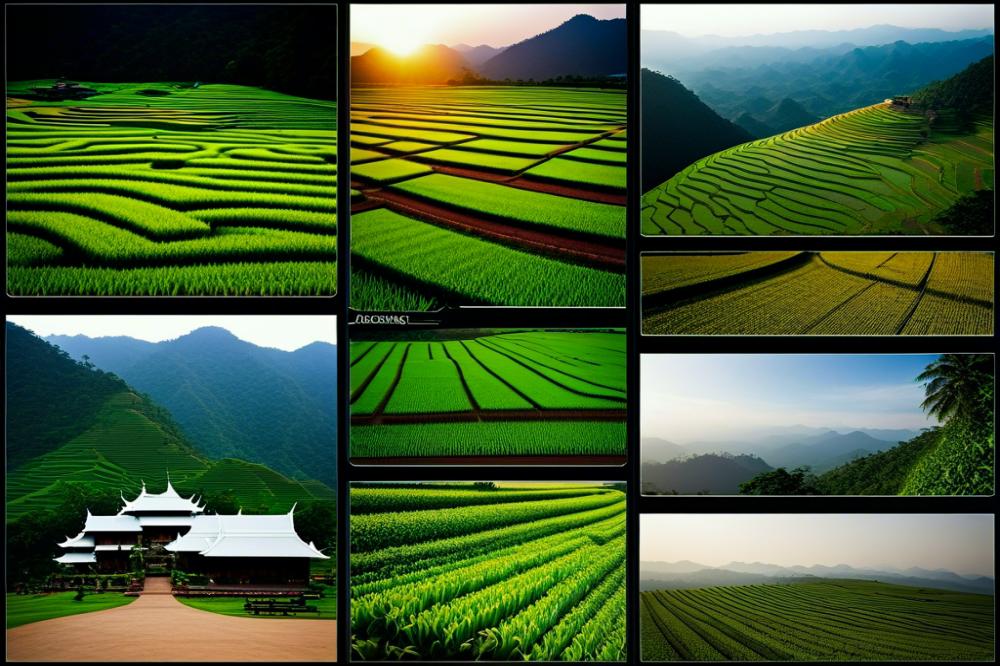Exploring Adventure in Thailand
adventure holidays in Thailand offer a thrilling escape from the ordinary. Visitors to this beautiful country often seek more than just beaches and bustling cities. They look for experiences that connect them with nature, culture, and sustainability. One remarkable destination that embodies this spirit is the Royal Agricultural Station in Angkhang.
Agriculture plays a vital role in Thailand’s economy and identity. The nation is famous for its diverse crops, delicious fruits, and aromatic herbs. Exploring the agricultural landscape reveals a deep-rooted connection between the land and its people. In the highlands, unique farming practices thrive, showcasing how communities adapt to their environment. This station serves as a beacon of innovation in sustainable farming methods.
At this research station, guests can immerse themselves in horticulture and conservation efforts. Here, biodiversity flourishes alongside a commitment to local produce. Visitors learn about organic farming techniques and participate in workshops that promote eco-friendly practices. Such experiences contribute to the understanding of sustainable agriculture‘s impact on the environment, economy, and society.
Tourism in this region often highlights the harmony between nature and cultivation. Travelers can enjoy picturesque views while gaining insight into the hard work that sustains local communities. The opportunity to witness the intersection of traditional methods and modern techniques creates a profound appreciation for agriculture‘s role in everyday life.
In summary, the Royal Agricultural Station in Angkhang provides not only an educational experience but also a chance to appreciate the beauty of the highlands. This journey promises to leave visitors enriched with knowledge about the importance of agriculture and sustainability in Thailand.
Royal Agricultural Station: A Hub of Innovation
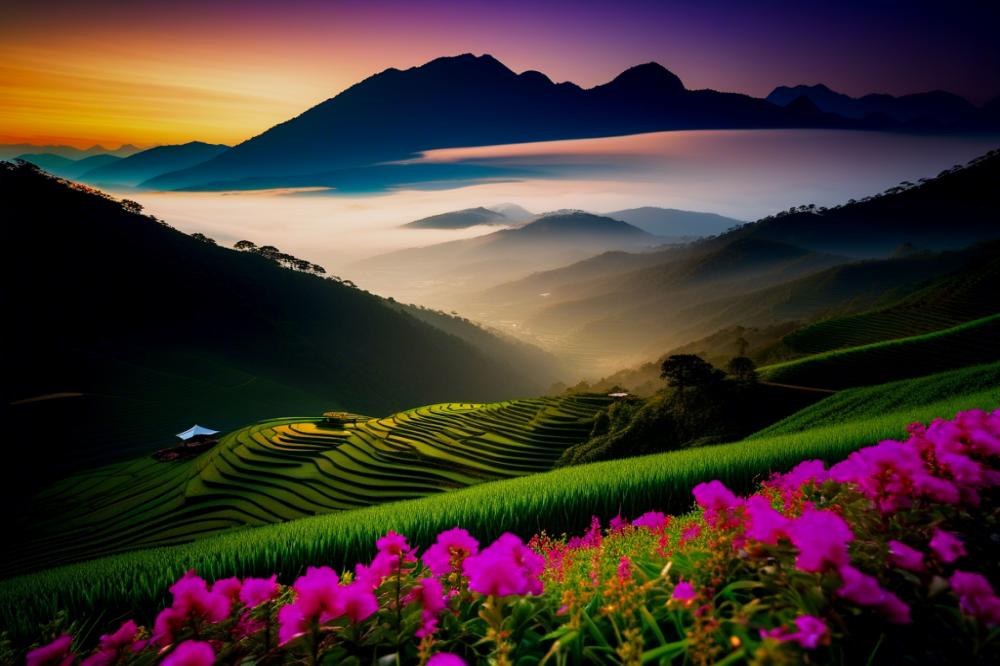
The Royal Agricultural Station in Angkhang serves a vital role as a research station in Thailand. Focused on sustainable farming practices, it aims to improve agriculture in the highlands. Farmers in mountainous areas face many challenges. The station provides valuable solutions to help them thrive.
Biodiversity is a core principle at this facility. Different plant species are explored and nurtured here. This research contributes to conservation efforts, highlighting the importance of preserving local ecosystems. By promoting various crops, the station helps maintain a balanced environment.
Horticulture plays a significant role in the daily operations at the station. Experts work diligently to develop better varieties of fruits and vegetables. These crops are not just ordinary; they reflect the unique conditions of the highlands. The station emphasizes the cultivation of local produce, which also supports nearby communities.
Visitors to the site often engage with the ongoing projects. Tourism is encouraged, allowing people to learn about innovative techniques used in agricultural practices. Educational programs demonstrate the importance of sustainable methods. By sharing knowledge, the station inspires others to adopt similar approaches.
Further research into different farming techniques continues to shape the future of agriculture in the region. Sustainable farming practices are not limited to one area; they have the potential for widespread application. The Royal Agricultural Station not only contributes to local farming but also sets an example for others.
Exploring the Highlands of Angkhang
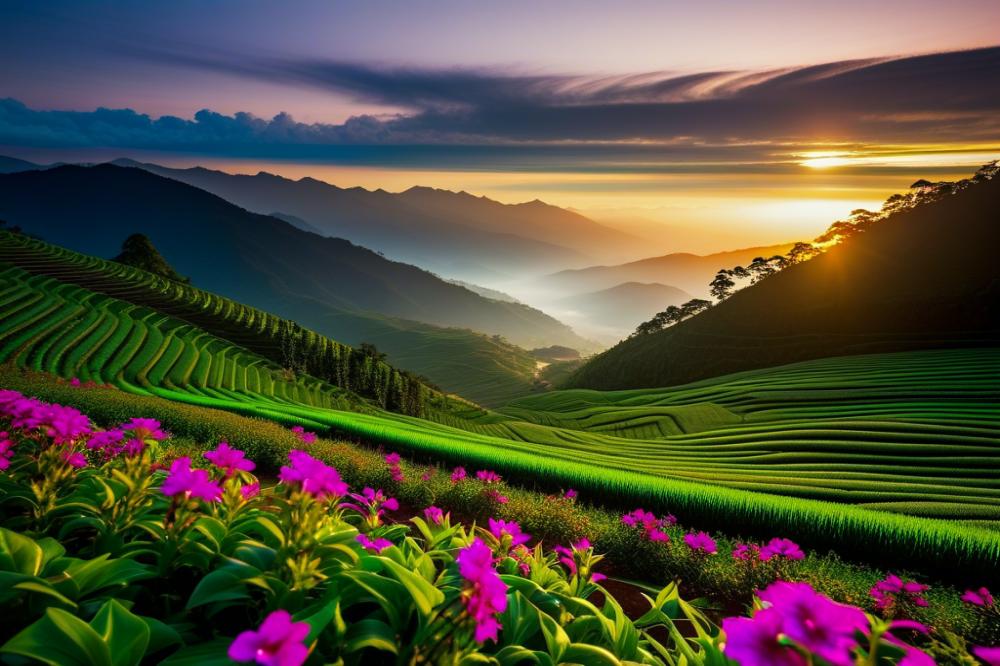
The Angkhang region of Thailand is known for its breathtaking landscapes and rich cultural heritage. Nestled in the mountains, this area is characterized by steep hills, lush valleys, and a diverse array of flora and fauna. Such geographical features create a unique habitat that supports various ecosystems. The biodiversity found here enhances the local environment and plays a crucial role in agriculture.
Highland agriculture flourishes in this region due to its favorable climate and rich soil. Farmers practice sustainable farming techniques, which help maintain the natural balance. Many types of crops grow in Angkhang, including fruits, vegetables, and medicinal plants. Visitors can witness how traditional farming methods combine with modern innovations at the Royal Agricultural Station. This center promotes horticulture and research while emphasizing conservation.
Tourism offers a way for people to connect with nature and culture in Angkhang. Hiking trails wind through the hillside, allowing trekkers to take in stunning views and observe local wildlife. At higher elevations, the air is crisp, and the scenery spectacular. Many paths lead to scenic viewpoints that showcase valleys filled with colorful blossoms and terraced farms.
Moreover, local markets provide insights into the community’s agricultural practices. Tourists can explore stalls brimming with fresh produce, handmade crafts, and traditional foods. Interacting with local vendors presents unique chances to learn about their way of life. Such experiences create memories that last long after leaving the highlands.
Overall, the Angkhang region is not merely a beautiful destination; it embodies a blend of agriculture and tourism. Visitors can appreciate the hard work of farmers while enjoying the natural beauty surrounding them. Exploring this highland area enriches understanding of both nature and culture, making it a worthwhile journey.
Sustainable Farming and its Impact
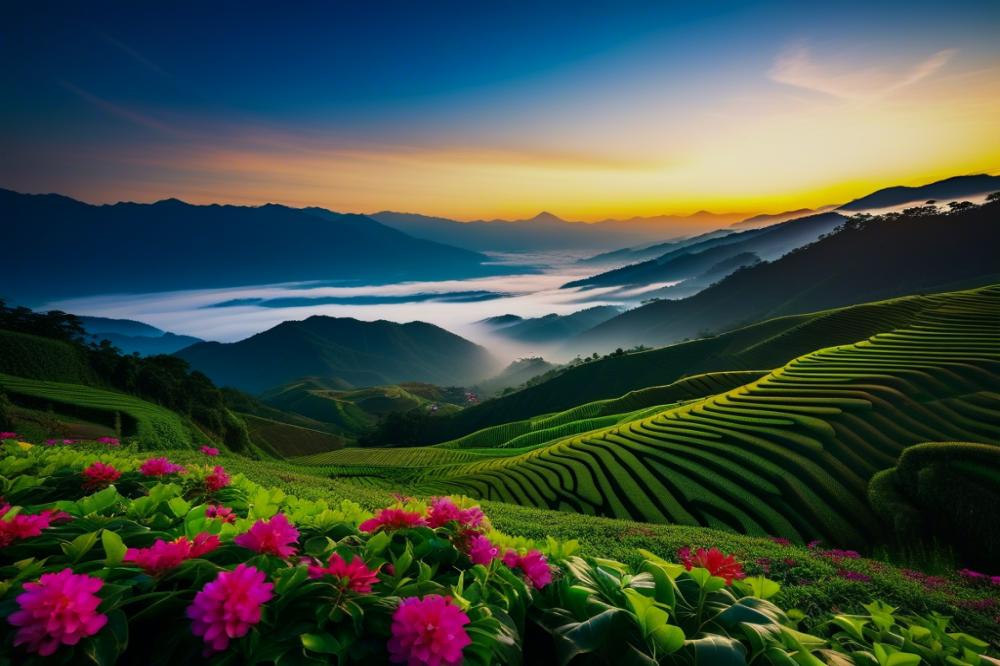
The Royal Agricultural Station in Angkhang actively embraces sustainable farming techniques. These practices play a vital role in conserving resources while maximizing biodiversity in the highlands of Thailand. Techniques such as organic farming are prioritized here. By relying on natural processes, the station reduces the need for chemical fertilizers and pesticides. This approach improves soil health and maintains ecosystem balance.
Crop rotation is another essential practice. It helps in preventing soil depletion and controlling pests. Additionally, the station implements agroforestry systems. These systems incorporate trees alongside crops, offering shade and improving microclimates. This method not only enhances biodiversity but also provides habitats for numerous species. Tourists can observe various flora and fauna during their visits, making it an enriching experience.
Water conservation is a critical focus as well. Rainwater harvesting and drip irrigation techniques are used to optimize water usage. Such methods allow for efficient water management, ensuring that local farmers have access to the resources they need. Each of these practices contributes to the overall health of the agriculture sector in Thailand.
The research station is dedicated to educating farmers about these sustainable methods. Workshops and training sessions are held regularly. Participants learn how to implement these techniques on their own farms. As a result, local produce becomes healthier and more resilient. This not only benefits the farmers but also provides fresh food options for consumers.
Overall, the commitment to sustainable farming at the station showcases its importance. Biodiversity thrives under these methods, which aids in the stability of local ecosystems. Local farmers gain practical knowledge and resources that ultimately enhance their productivity. In turn, this strengthens the agriculture sector in remarkable ways. Not only does this foster economic growth, but it also highlights the station’s role in supporting environmental conservation efforts.
Tourism and Community Engagement
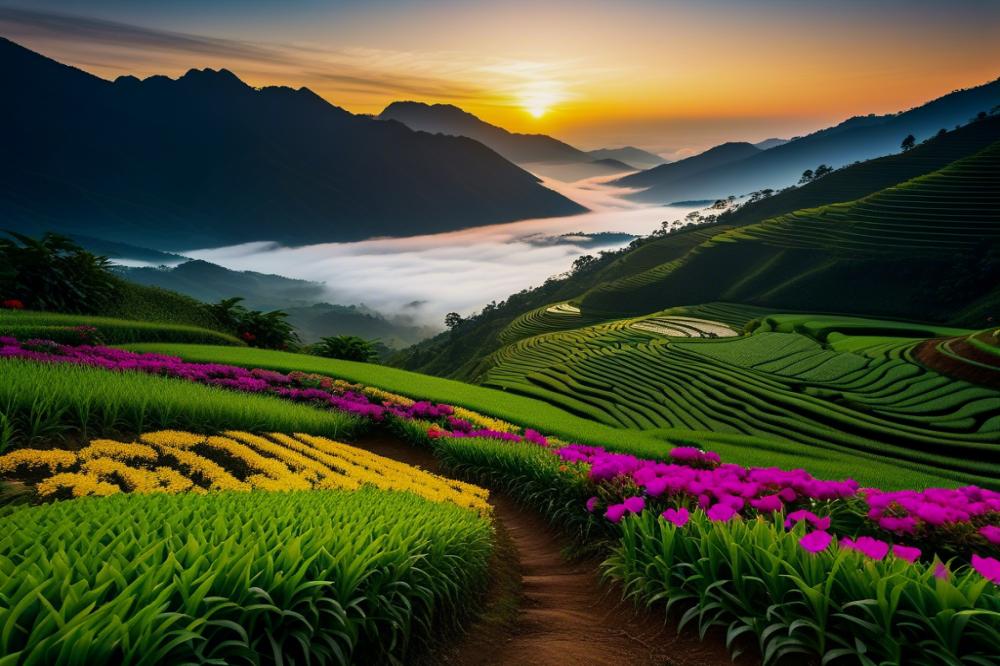
The Royal Agricultural Station in Angkhang serves as a significant hub for ecotourism in Thailand. This initiative is designed to promote sustainable farming practices while supporting the local community. Visitors to the station can enjoy a variety of experiences, including guided farm tours that showcase the diverse crops grown in the highlands.
During these tours, tourists can learn about horticulture techniques used by local farmers. Workshops focus on traditional farming methods and conservation efforts. Engaging with the community fosters a better understanding of agricultural challenges and successes in the region. Tourists often get to taste local produce, enhancing their connection to the area.
Such interactions allow for a cultural exchange that benefits both visitors and residents. Locals can share their knowledge of farming, traditions, and the natural environment. This collaborative spirit enriches the experience for everyone involved. Moreover, tourism helps to generate income for local families, providing financial stability.
Maintaining biodiversity is another key aspect of the station’s mission. Tourists often express interest in the various species of plants and animals they encounter. This interest can lead to increased awareness about environmental conservation, encouraging visitors to adopt more sustainable practices in their own lives.
By participating in these activities, tourists contribute to the promotion of sustainable agriculture and community well-being. Each interaction helps to reinforce the importance of supporting local initiatives. With every visitor, the connection between tourism and community engagement strengthens, ensuring a positive impact on both sides.
The Future of Agriculture at the Royal Agricultural Station
The Royal Agricultural Station in Angkhang is at the forefront of agricultural advancement in Thailand. Ongoing research initiatives focus on enhancing sustainable farming practices. These efforts aim to promote biodiversity and protect delicate ecosystems found in the highlands. Through these projects, the station seeks to develop new techniques in horticulture that can serve local communities.
Innovation plays a critical role in modern agriculture. Farmers face challenges such as climate change and varying soil quality. By investigating alternative farming methods, the station is helping to create solutions that benefit both the environment and local farmers. Programs promoting organic farming not only yield healthy crops but also foster an appreciation for conservation.
Future projects at the research station will dive deeper into the benefits of native crops. Advocating for local produce supports the economy of rural areas. This approach also encourages consumers to connect with the land and the people who farm it. As knowledge spreads, tourists are drawn to experience the unique agricultural practices of the highlands.
Educational programs play a significant role in these initiatives. They empower local farmers with tools and abilities to adapt to changing conditions. Workshops and training sessions demonstrate effective methods in agriculture that can be replicated at home. In turn, this knowledge leads to sustainable farming practices and bolsters food security.
Collaboration with universities and international organizations enhances the scope of the research station’s projects. Engaging in partnerships has led to valuable exchanges of ideas and technology. Such collaborations will result in innovative methods that can help combat local agricultural issues. Stakeholders remain optimistic about future advancements.
Finally, the station’s commitment to environmental stewardship cannot be overstated. Conservation of natural resources is essential for safeguarding the future of agriculture in Thailand’s highlands. Keeping ecosystems intact ensures that future generations have access to diverse crops and a robust agricultural framework. Ongoing efforts will illuminate a path toward sustainable growth.
Final Thoughts on the Journey
Exploring the Royal Agricultural Station in Angkhang reveals much about sustainable farming practices. Visitors can witness firsthand how innovative techniques enhance productivity while protecting the environment. This destination plays a significant role in advancing agriculture and supporting biodiversity in Thailand.
Travelers are encouraged to appreciate how the station contributes to local ecosystems. From diverse crops to various species of plants, the efforts here promote a harmonious balance with nature. Tourists can see how involved the community is in these initiatives. Engaging with local farmers and staff provides insight into their dedication and knowledge.
Planning a visit to this remarkable place is worthwhile. Those looking for a memorable addition to their Thailand adventure holidays will find it a fascinating and educational experience. The connection between agriculture and tourism at this venue enriches visitors’ understanding of the region’s culture and sustainability efforts.
In summary, the Royal Agricultural Station stands as a beacon of innovation and care for the environment. It is more than just a tourist attraction; it is a commitment to future generations. Consider embarking on this journey and discovering how agriculture and nature coexist beautifully in this part of the world.

